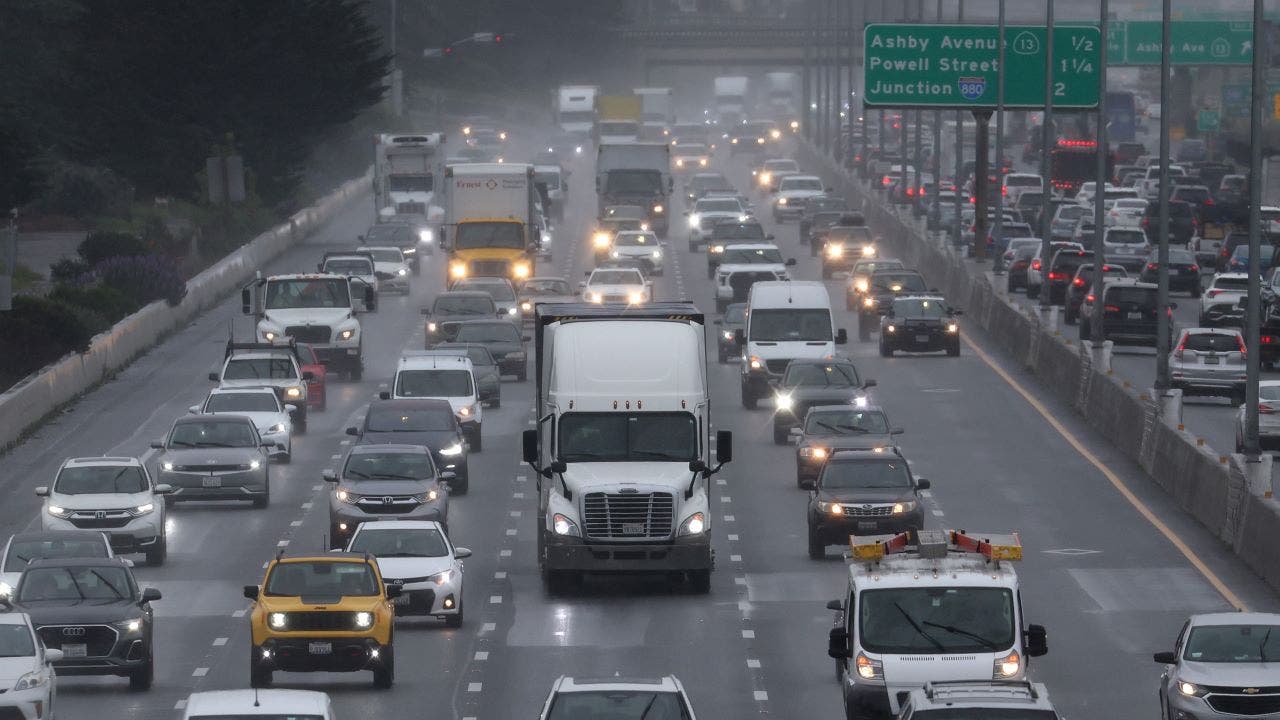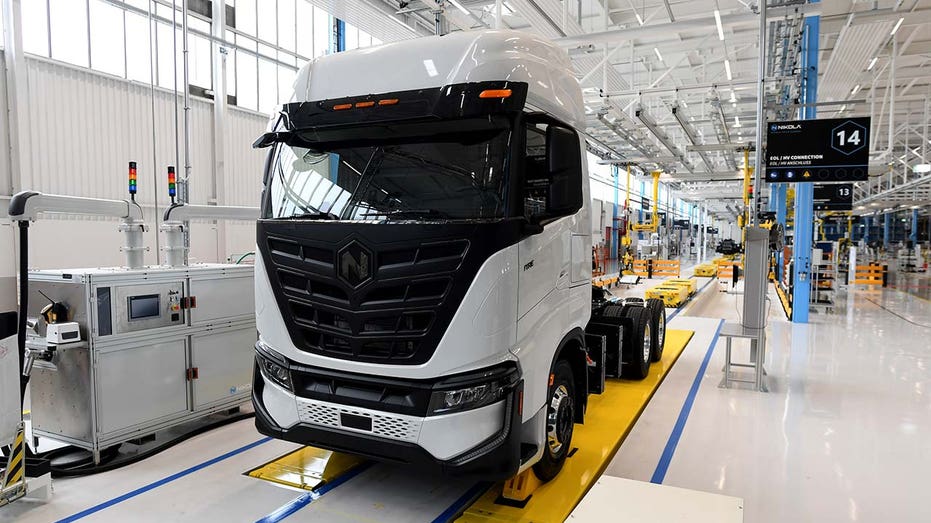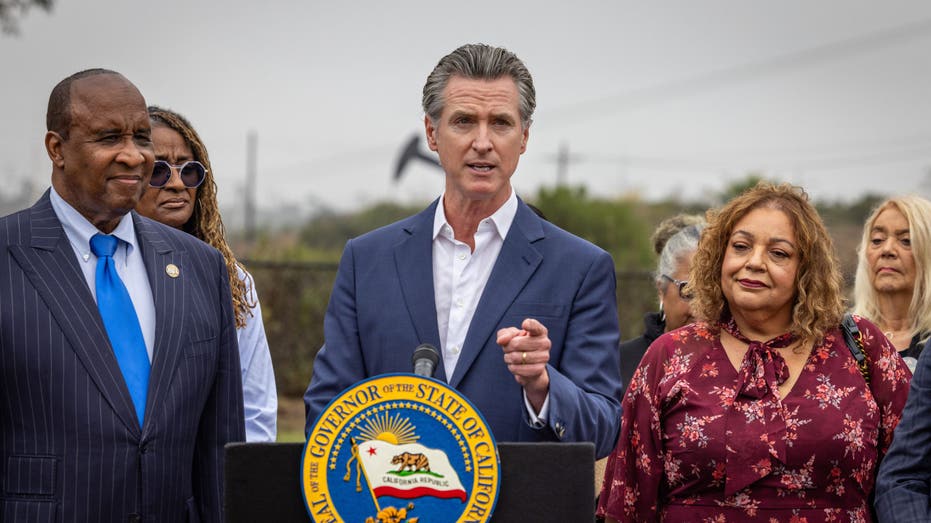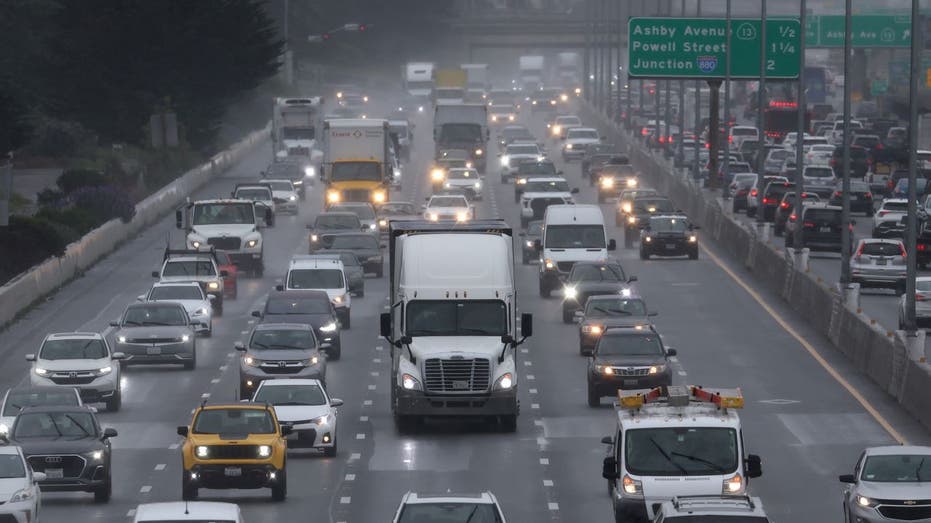Useful information
Prime News delivers timely, accurate news and insights on global events, politics, business, and technology
Useful information
Prime News delivers timely, accurate news and insights on global events, politics, business, and technology

Michael Buschbacher, an attorney representing the American Free Enterprise Chamber of Commerce, speaks with FOX Business about the group’s lawsuit challenging California’s Clean Truck Partnership agreement.
FIRST ON FOX – A pro-business Republican group and Midwest truck operators say California regulators have illegally circumvented federal law to force a transition to electric trucks.
The American Chamber of Commerce Free Enterprise (AmFree) and truck operators allege in a new lawsuit that California has created a cartel agreement with the nation’s largest heavy-duty trucking companies to phase out internal combustion engines to 2036. The alleged plan involves the California Air Resources Board (CARB) and all the major gas-powered heavy-duty truck manufacturers who signed an agreement called the Clean Truck Partnership last year.
“The agreement includes a series of rules that California has been trying to implement that will require the complete electrification of the trucking sector in just over a decade,” said Michael Buschbacher, AmFee’s lead attorney.
While most states are prohibited from setting their own motor vehicle emissions standards, California is exclusively allowed to do so under the Clean Air Act of 1967, as long as its rules are approved by the Environmental Protection Agency. But AmFree alleges that California has illegally attempted to enforce emissions standards without the EPA’s green light.
NEBRASKA AG LAUNCHES ASSAULT AGAINST CALIFORNIA ELECTRIC VEHICLE PUSH

A new lawsuit alleges that California regulators have illegally colluded with major heavy-duty truck manufacturers to enforce emissions standards that were not approved by the EPA with the intent of phasing out gasoline-powered trucks. (Andrés Gebert/Bloomberg)
“If you don’t have permission from the EPA, you can’t even try to enforce those (types of) standards. These are standards for new motor vehicle emissions. And that’s what this agreement is about. And our argument is that’s what it’s about.” illegal and this has to stop,” said Buschbacher.
CARB did not immediately respond to a request for comment.
The complaint claims that climate regulators in California have produced “a typhoon of coercive and disruptive regulations” aimed at meeting Democratic Gov. Gavin Newsom’s goal of having all heavy vehicles in the Golden State be “zero emissions” by 2045.
But in July 2023, California offered major truck manufacturers temporary regulatory relief in exchange for commitments to adopt vehicle standards “that will require the sale and adoption of zero-emissions technology in the state, regardless of whether any other entity challenges California’s authority to set stricter emissions standards under the federal Clean Air Act,” according to CARB.
CALIFORNIA DRIVERS PREPARE FOR A POSSIBLE GAS PRICE INCREASE AFTER STATE REGULATORS APPROVE STRICTER CLIMATE STANDARDS
This agreement, which gave truck manufacturers a “reasonable lead time” to meet California emissions standards, is known as the Clean Truck Partnership. Manufacturers that were part of the settlement and named in the lawsuit include Cummins Inc., Daimler Truck North America, Ford, General Motors, Hino Motors Limited Inc., Isuzu Technical Center of America Inc., Navistar, Paccar, Stellantis NV, Volvo . Group North America and the Truck and Engine Manufacturers Association, an industry trade group.
“However, in exchange for recognizing CARB’s sovereignty, manufacturers have obtained a cushy cartel agreement that guarantees them a steady stream of supracompetitive profits, subsidies, and tax credits,” the lawsuit alleges.

Democratic Gov. Gavin Newsom of California has set ambitious goals for the Golden State to require all heavy-duty trucks to be electric vehicles within the next two decades. (Jason Armond/Los Angeles Times via Getty Images/File)
“By acting together as an industry, this agreement ensures that costs will not be borne by manufacturers but will be passed on to their customers and then to the rest of the country.”
Two transportation companies, Meiborg Brothers Inc. and TanTara Transportation Corp., filed declarations for AmFree’s lawsuit, alleging damages from California’s actions.
The companies say some manufacturers are now requiring them to buy one electric truck for every seven or eight diesel trucks they buy or face higher prices. In court papers, the operators allege they will lose access to nearly a quarter of U.S. truck dealers once California and other states that adopt California’s standards phase out diesel trucks.
They also argue that electric trucks cost more upfront and have higher maintenance and resale costs, which cannot be fully passed on to consumers.
“The consequences here are that they will increase costs and reduce consumer choice,” Buschbacher said.
CALIFORNIA BOARD MOVES TO BAN GASOLINE CARS BY 2035 IN FAVOR OF ELECTRIC VEHICLES

Truck operators say California’s strict emissions standards have hurt them by raising costs and limiting consumer options. (Justin Sullivan/Getty Images/File)
“If you think grocery prices are bad now under the Biden-Harris administration, this will drive them up even more. If you think it costs too much to rent a U-Haul to get around town, those things are going to disappear as a result of this,” he said.
AmFree’s lawsuit follows similar litigation brought by Nebraska Attorney General Mike Hilgers, who accused CARB and truck manufacturers of engaging in an “industry-wide conspiracy” to eliminate liquid fuel trucks.
Hilgers told Fox Business that these four companies have openly admitted to having “colluded in a classic antitrust way.”
CLICK HERE TO GET FOX BUSINESS ON THE GO
Like Nebraska, AmFree is seeking an injunction to block the Clean Truck Partnership from being enforced.
“California has its own vision of how things should be, and that’s an all-electric future. But that’s not a smart way to approach climate policy,” Buschbacher said. “We should have innovation that is technologically neutral in the United States and that moves toward clean solutions in ways that actually grow the economy and improve our way of life. And this does the opposite.”